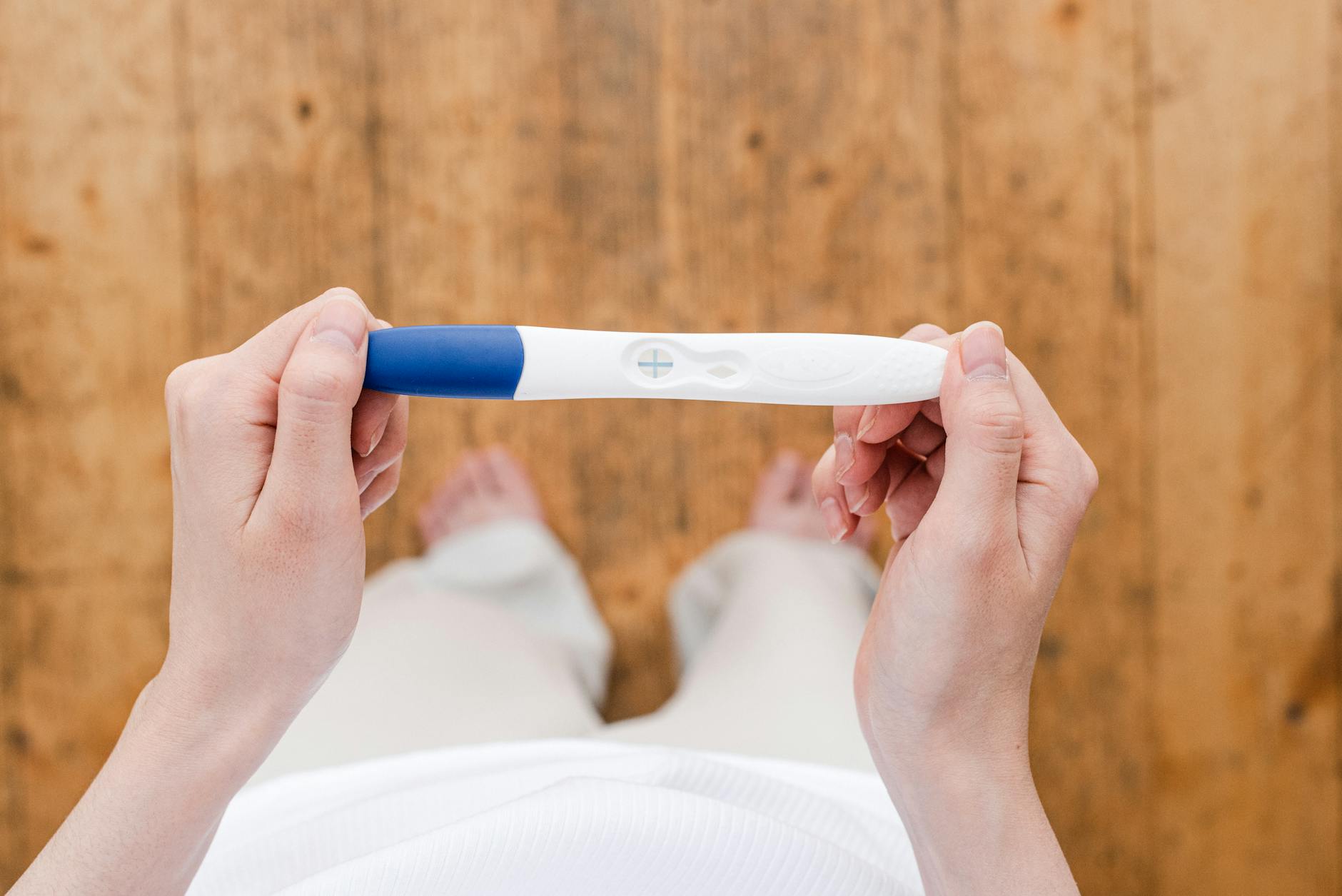Signs of Pregnancy: What to Watch for in the First Weeks
Pregnancy often looks different for everyone, but early signs tend to show up fast. Some of us notice hints like sore breasts, mood changes, or nausea before a missed period. Others may feel tired or need to pee more often without linking it to pregnancy right away.
Knowing what these signs mean can ease stress, help us make smart choices, and get early care if needed. Spotting changes early can set the stage for a healthier pregnancy and give some peace of mind as we wait for answers.
Classic Early Signs of Pregnancy
Catching the first hints of pregnancy often feels both exciting and confusing. Bodies send out early signals before a test even turns positive. Knowing which signs are most common helps us tune in to our bodies sooner, set expectations, and seek answers when we need them most. Here are some of the first, most classic pregnancy signs to keep on your radar.
Missed Period: The Most Recognized Clue
Missing a period sits at the top of pregnancy sign lists for a reason. If we track cycles and our period skips a beat, it can be a strong nudge to take a test. This happens because pregnancy stops the monthly cycle that leads to bleeding.
It’s not always so clear-cut, though. Some of us have irregular periods already, or we might notice a lighter or different bleed than usual. Timing can throw us off. Stress, illness, or changes in weight can also mess with periods. Still, when a period is late and you’re sexually active, it’s time to consider pregnancy. Get more details on this symptom from the Mayo Clinic’s summary of early pregnancy signs.
Morning Sickness and Nausea
Many pregnant people face waves of nausea, which often starts a few weeks after conception. Despite its name, morning sickness isn’t limited to the early hours. Nausea can hit any time of day—morning, noon, or night. Sometimes certain smells or foods can bring it on fast, and even favorite snacks might suddenly seem unbearable.
No two cases feel exactly alike. Some of us have mild queasiness, while others battle full-blown vomiting. Most find that symptoms peak around week 9 and start to fade by week 14. Hormones like human chorionic gonadotropin (hCG) and changes in blood sugar levels are key causes. For a closer look, see the Cleveland Clinic’s guide to morning sickness.
Breast Changes
Breast changes usually show up early. Soreness, swelling, or a heavy feeling are common. Many of us notice our nipples look darker or larger, and our breasts might feel fuller and sensitive to touch. These changes happen thanks to surging hormones and increased blood flow as the body gears up for feeding a baby.
Other changes might include tiny bumps around the nipple (Montgomery glands) becoming more visible or veins on the breast skin standing out. For more information about how and why the breasts change, see the American Pregnancy Association’s guide to breast changes in pregnancy.
Fatigue
Tiredness can make even simple tasks feel tough. Many pregnant people feel wiped out in those first weeks, needing more naps and longer sleep. The main reason? Hormones—especially the rise of progesterone make us feel drowsy and low on energy.
This isn’t just “regular” tired. It can hit hard, like a weight pressing us into the couch. The body is already working harder to support the early placenta and extra blood flow kicks in. Get practical tips and insights from this Johns Hopkins Medicine overview of first trimester fatigue.
 Photo by RDNE Stock project
Photo by RDNE Stock project
Other Physical Changes to Notice
Pregnancy doesn’t just announce itself with tiredness or a missed period. Our bodies often send subtle, unexpected signals. These changes may catch us by surprise—sometimes before we even think to take a test. From the pressure of a full bladder to pinches of mild discomfort, being in tune with the small things helps us read our bodies better.
Frequent Urination: Causes Behind the Urge
Most of us expect morning sickness, but the sudden need to pee more can feel odd. Frequent urination often starts early due to heightened pregnancy hormones and increased blood flow going to the kidneys. Our body begins processing fluids faster, so the bladder fills up quicker—meaning more trips to the bathroom at all hours.
This symptom may get stronger as pregnancy progresses, but it’s those first weeks that catch many off-guard. Sometimes it interrupts sleep or daily plans. While a full bladder can be harmless, staying alert for burning or pain is smart—it could signal an infection, which is common and treatable. Find practical information on why frequent urination is common in pregnancy and when to call your provider.
Implantation Bleeding and Spotting
A small number of us see light bleeding or spotting in the first weeks. This is called implantation bleeding, and it’s very different from a period. The spotting is light—often brown, pink, or barely there. Heavy flow or bright red blood usually points to something other than implantation.
Implantation happens when a fertilized egg attaches to the uterine lining. Tiny blood vessels can rupture, causing light bleeding. This event often comes a week or so before a missed period. The spotting won’t last as long as a regular period and rarely soaks a pad. Curious about how to tell the difference? See these key differences between implantation bleeding and a period for peace of mind.
 Photo by SHVETS production
Photo by SHVETS production
Bloating, Mild Cramping, and Discomforts
Bloating feels like a swollen, puffy belly and is often paired with mild cramping. For many, this starts even before a positive pregnancy test. The cause? Hormones slow the digestive tract, leading to gas and fullness that lingers.
We may notice:
- A stomach that feels tight or stretched
- Gentle pinching around the lower belly
- More burping or passing gas
- Mild constipation
These aches can mimic period pain, but they’re usually milder and fade with rest. The big clue is that period cramps tend to get stronger, bringing on full bleeding. Early pregnancy cramps rarely get worse and often come with that “heavy” stomach feeling. For a deeper look at what’s normal and what’s not, you can read Healthline’s article on early pregnancy bloating and cramping.
Small physical signals help us piece together the full story, often nudging us to listen more closely to our bodies. Each sign, even if subtle or odd, plays its part.
Less Common or Subtle Pregnancy Symptoms
Pregnancy can surprise us with changes that slip under the radar. While missed periods and nausea get most of the attention, some signs are quiet but still meaningful. These less talked about symptoms might show up before anything else. Knowing about them helps us be more in tune with our bodies, giving us a fuller picture of what’s really going on.
Heightened Sense of Smell and Taste
The world can suddenly feel extra scented, and everyday foods might taste different. Some of us walk into a room and catch a whiff of something far away—like someone peeled an orange on the other side of the house. Perfume, coffee, cooking odors, even the scent of water can trigger nausea or cravings.
Many notice food aversions or strong likes and dislikes they have never had before. That steak you used to crave could become unbearable overnight. This hyper-awareness often starts early, thanks to surging hormones. For a lot of us, this sense fades in the second trimester, but for others, it lingers.
If you want to learn more about these changes, check out this detailed list of unusual pregnancy symptoms.
Mood Swings and Emotional Shifts
Emotions can hit harder and shift with little warning. One moment, we feel on top of the world. The next, a sad commercial or a messy kitchen leaves us teary-eyed or frustrated. Mood swings in pregnancy come from hormonal changes, stress, and the body’s effort to adjust to something new.
This isn’t all negative. Some of us feel bursts of energy, creativity, or even more confidence. Others struggle with worry, irritability, or quick changes in feelings. Support from friends, partners, and other soon-to-be parents helps make sense of it all.
For more about why mood changes show up, you can see a breakdown of early pregnancy signs from Mayo Clinic.
Skin and Hair Changes: Acne, Pigment Shifts, ‘Pregnancy Glow’
Hormones put our skin on a roller coaster. For some, skin looks brighter and more even—this is the famous “pregnancy glow.” Extra blood flow and oil production can make our faces look flushed and radiant.
But for others, acne makes a comeback, even if it disappeared after high school. Breakouts can pop up fast, especially around the jawline. Our skin may also get dark patches, often called melasma or the “mask of pregnancy.” These brown patches show up most on the face but can appear anywhere.
Some of us see a dark line (“linea nigra”) running from the belly button down. Hair may grow faster, feel thicker, or even change texture. But postpartum, hair sheds more than usual as hormone levels drop.
For a full list of odd symptoms, including skin and hair changes, check this guide to weird early pregnancy symptoms.
 Photo by cottonbro studio
Photo by cottonbro studio
Each subtle shift is another way our bodies tell the story of early pregnancy—long before a bump shows up or a test reads positive.
How to Confirm Pregnancy
The first signs can point us in the right direction, but only a clear test can confirm pregnancy. Whether we want to check at home or seek answers with a doctor, these methods give us peace of mind. Here’s what to know about confirming pregnancy, what to expect from tests, and when it’s best to reach out to a provider.
Home Pregnancy Tests: How They Work
Home pregnancy tests are easy and reliable for most people. They work by spotting the hormone hCG (human chorionic gonadotropin) in our urine. Our body only makes this hormone after a fertilized egg settles into the womb.
Most tests look like plastic sticks with a small window. After we pee on the test or dip it in a cup of urine, lines or symbols pop up in just a few minutes. These tests:
- Are 99% accurate when used after a missed period
- Need us to follow instructions closely for best results
- Can pick up positive results early, sometimes before we miss a period
If we test too soon or use diluted urine, we might get unclear or false negatives. Early morning urine is usually the best for testing because it’s more concentrated.
For a closer look at how at-home urine tests work and how to use them, see this detailed overview from the Cleveland Clinic on pregnancy tests.
Blood Tests and Medical Confirmation
Doctors can confirm pregnancy with a blood test, which spots the same hCG hormone as home tests. Blood tests are very accurate and can catch pregnancy even before enough hCG shows up in our urine.
A blood test might be needed if:
- We’re unsure after a home test
- We have symptoms but negative urine tests
- The pregnancy needs close monitoring
Two types of blood tests are used:
- Qualitative hCG test: Tells us if hCG is present at all—yes or no.
- Quantitative hCG test: Measures how much hCG is in the blood. This can help track progress or spot issues.
Doctors may also run blood tests if we have problems like pain or heavy bleeding. These tests are usually done a week or two after a missed period. More about blood testing is provided in this Cleveland Clinic guide to pregnancy tests.
When to See a Doctor
It’s common to want fast answers, but there are moments when seeing a doctor is the best step.
We should make an appointment if:
- A home test is positive—we’ll want medical confirmation and early guidance.
- We have confusing symptoms or mixed home test results.
- There’s pain, heavy bleeding, or something feels off.
Most clinics set the first visit about 6–8 weeks after a missed period. Earlier appointments might be needed for pain, fever, or prior health problems.
Once we see a provider, they can:
- Confirm pregnancy with a urine or blood test
- Check our health and answer questions
- Start any early prenatal care
For more about when to visit and what to expect, this summary on when to go to the doctor after a pregnancy test is helpful.
 Photo by MART PRODUCTION
Photo by MART PRODUCTION
Getting clear answers is the start of making smart, healthy choices. By knowing when and how to test, we take the guesswork out of early pregnancy.
Conclusion
Early pregnancy rarely hides for long. Most of us spot changes like missed periods, queasiness, sore breasts, or new fatigue. Sometimes, only small hints like frequent bathroom trips or stronger smells show up first. Every sign is the body’s way of telling its story.
Testing as soon as we notice signs clears up guesswork. A quick test brings real answers, with a follow-up visit to a provider giving us next steps for care. Starting prenatal care early helps protect our health and the baby’s future.
If the signs add up or something feels off, reaching out for medical advice gives us peace of mind. We thank every reader for trusting us with this important topic and invite you to share your story or ask questions below. Each shared voice helps make pregnancy feel less uncertain for all of us.


